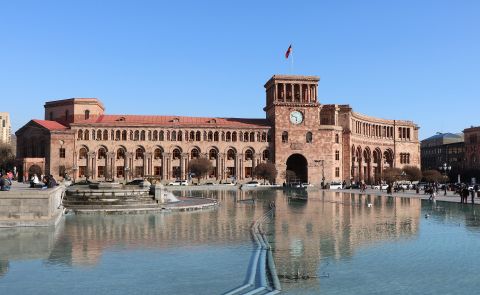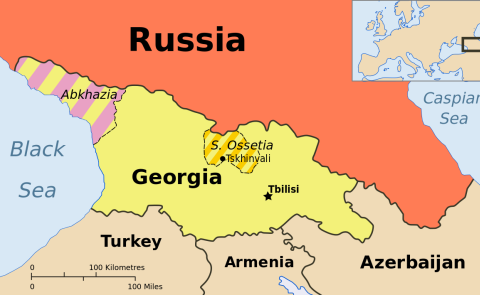
Thirty fourth day of the renewed Nagorno-Karabakh war
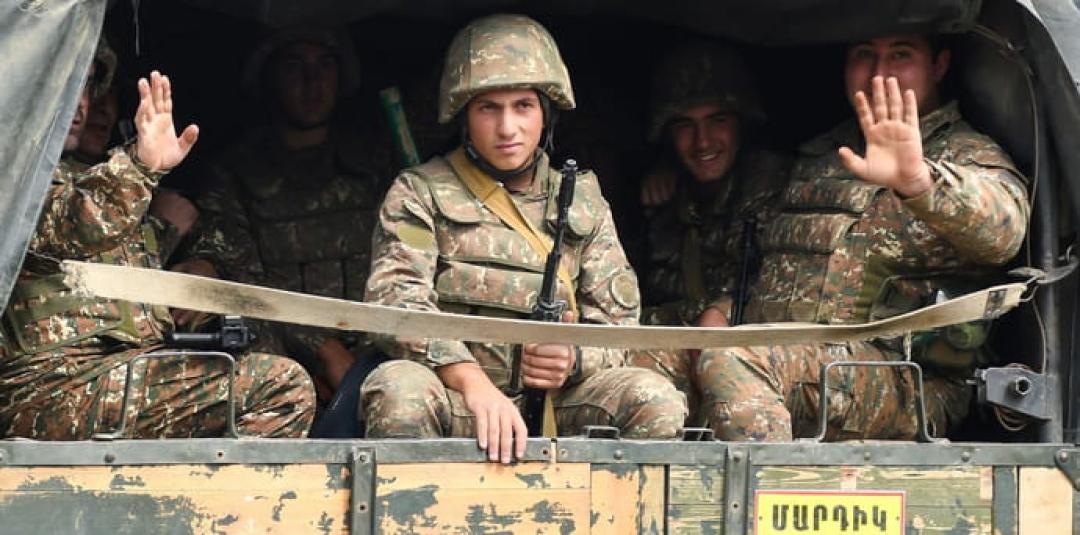
Military developments
On 30 October the de facto Ministry of Defence of Nagorno-Karabakh reported that the Azerbaijani Army launched a new attack in the northern and south eastern directions of the front.
The Armenian Ombudsman Arman Tatoyan reported that an 84-year-old Armenian civilian captured by Azerbaijani armed forces died in captivity. The Azerbaijani authorities said that the Armenian authorities refused to accept the deceased citizen in the unilateral exchange of captives which took place on 29 October (Caucasus Watch reported).
The Azerbaijani MOD reported that combat operations continued mainly on the Agdere, Khojavend and Gubadli directions of the front. In addition, it highlighted that the territories of the Goranboy, Terter, Agdam and Agcabedi regions were under artillery fire. It was also announced that the Azerbaijani Army gained control over the Khudaverdili, Gurbantepe, Shahveledli and Khubyarli villages of the Jabrayil region, along with the Aladin and Vejneli villages of the Zengilan region. The Kavdadig, Memer and Mollali villages of Gubadli region are also now under the control of the Azerbaijani Army.
The International NGO Human Rights Watch said that Armenian Armed Forces either fired or supplied internationally banned cluster munitions and at least one other type of long-range rocket used in an attack on Barda city. The NGO analysed photos of cluster munition remnants taken by international and local journalists and residents at and near the attack scene. It identified two of the weapons as a Smerch cluster munition rocket and a Smerch parachute-retarded high-explosive fragmentation rocket.
Political developments
Armenia’s Prime Minister Nikol Pashinyan said in an interview with The Daily Telegraph that deployment of Russian peacekeepers would be an optimal solution to the Nagorno-Karabakh conflict. He said he supports the idea of the deployment of Russian peacekeepers in the conflict zone, but the problem is that the deployment needs all the conflicting parties’ consent.
Pashinyan also stressed in a number of interviews with western media outlets that Europe should make more efforts to stop Turkey’s support to Azerbaijan. He said that Turkey was the main instigator of this war. “Turkey came here not so much to support Azerbaijan in the settlement of the Nagorno-Karabakh conflict, but to continue its imperial policy. And what is happening here is a continuation of the policy that Turkey has been pursuing in the Mediterranean, with regard to Greece, Cyprus, Libya, Syria and Iraq. And again, my record is that it is an imperial policy, because in fact the Armenians in the South Caucasus are the last obstacle for Turkey on the way to expanding its imperial policy to the north, east and south-east. My view remains the same. If Western societies fail to adequately assess Turkey’s actions, they will have to meet them in Vienna in the near future,” Pashinyan said.
Armenia’s Defence Minister David Tonoyan received the US Ambassador to the country Lynn Tracy. Tonoyan noted at the meeting that there is an absence of a cessation of hostilities on the front. He also stressed that the ceasefire is possible only if verification measures are applied on the spot.
The spokesperson of Armenia’s Prime Minister Mane Gevorgyan wrote on her Facebook page that the first and second ex-presidents of Armenia Levon Ter-Petrosyan and Robert Kocharyan intend to discuss in Moscow the possibilities of resolving the Karabakh conflict. “In any case, the Prime Minister and the government are open to proposals for resolving the current situation and have never refused to discuss such proposals,” Gevorgyan wrote. Later, it was reported that Kocharyan has contracted the coronavirus and will not be able to come to Russia for consultations on Karabakh.
Azerbaijan’s President Ilham Aliyev held an interview with the Russian news agency Interfax. In the interview he again reiterated his critical stance towards the OSCE Minsk Group. “I have spoken many times about the activity of the OSCE Minsk Group over the past month. Any format, no matter what it is called and who it involves, should acknowledge its ineffectiveness if it doesn't fulfil the set task. And the set task has not been fulfilled. Although I cannot deny that the Minsk Group made attempts to reach a settlement, because fundamental principles were elaborated with its assistance,” he said.
“But from the point of view of effectiveness and efficiency, the Minsk Group, of course, didn't justify itself, I mean the activity of the co-chairs. Should the co-chairs be other countries, this could have been explained by their insufficient international weight, by their lack of authority to implement even the UN Security Council resolutions that they had adopted themselves. But when the Minsk Group co-chairs are three members of the UN Security Council, when three nuclear powers cannot exert pressure on Armenia, this, of course, raises a lot of questions… If we formed a contact group today, its composition would, of course, have been completely different. It would include countries that have their positions in the region and that have potential and authority in the world. Of course, I think the countries that are current co-chairs could probably remain there,” he added.
When asked about the deployment of peacekeepers to the region, Aliyev answered that it was too early to discuss such a topic. "This issue is reflected in the fundamental principles, but we have never seriously discussed it because we simply didn't get to it. As for the desire of the Armenian Prime Minister to see peacekeepers in the conflict zone, then firstly, this is none of his business, because when we speak about the conflict zone, we should understand that this is Azerbaijan's territory. If we speak about peacekeepers at the border of Armenia and Azerbaijan, this is another issue. But as far as I understand, it is the Azerbaijani territory that is in question now, that is why we should have the final say. But for my part I would like to note that when we speak about it, we should firstly understand what mandate possible observers would have and where they would be deployed. One should understand that there is no contact line, so where will their posts be? What mandate, composition, numbers, arms, and functions will they have, and who will ensure their security? These questions require very thorough examination, and only afterwards will we be able to say whether we agree to it or not. That is why it is so far premature," Aliyev replied.
See Also

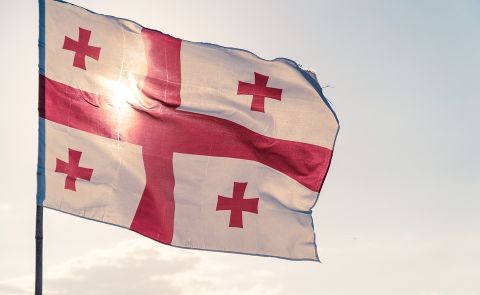
Georgian Bishop Accuses Government Official of Plotting Assassination; Opposition Leader Alleges Husband’s Abduction
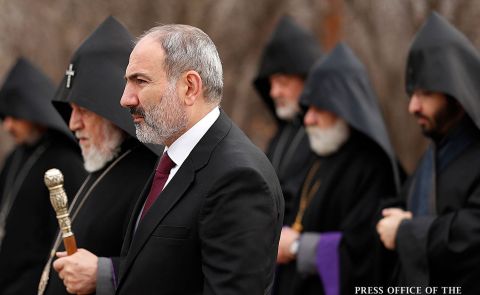
Armenian Government and Church Face Growing Tensions Over Leadership Allegations
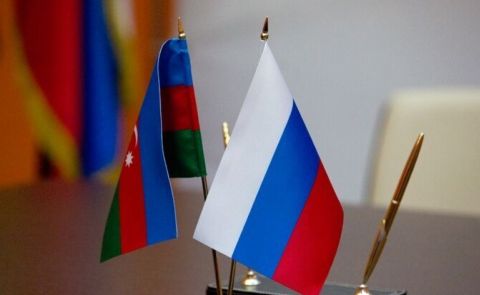
Tensions Rise Between Russia and Azerbaijan Over Medinsky’s Ukraine Conflict and Karabakh Remarks
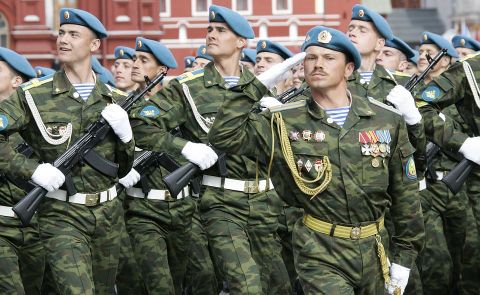
Chechen Official Outlines Conscription Rules for Russia-Ukraine War
